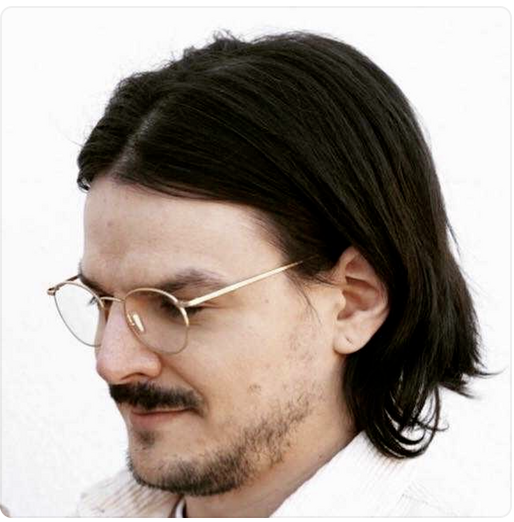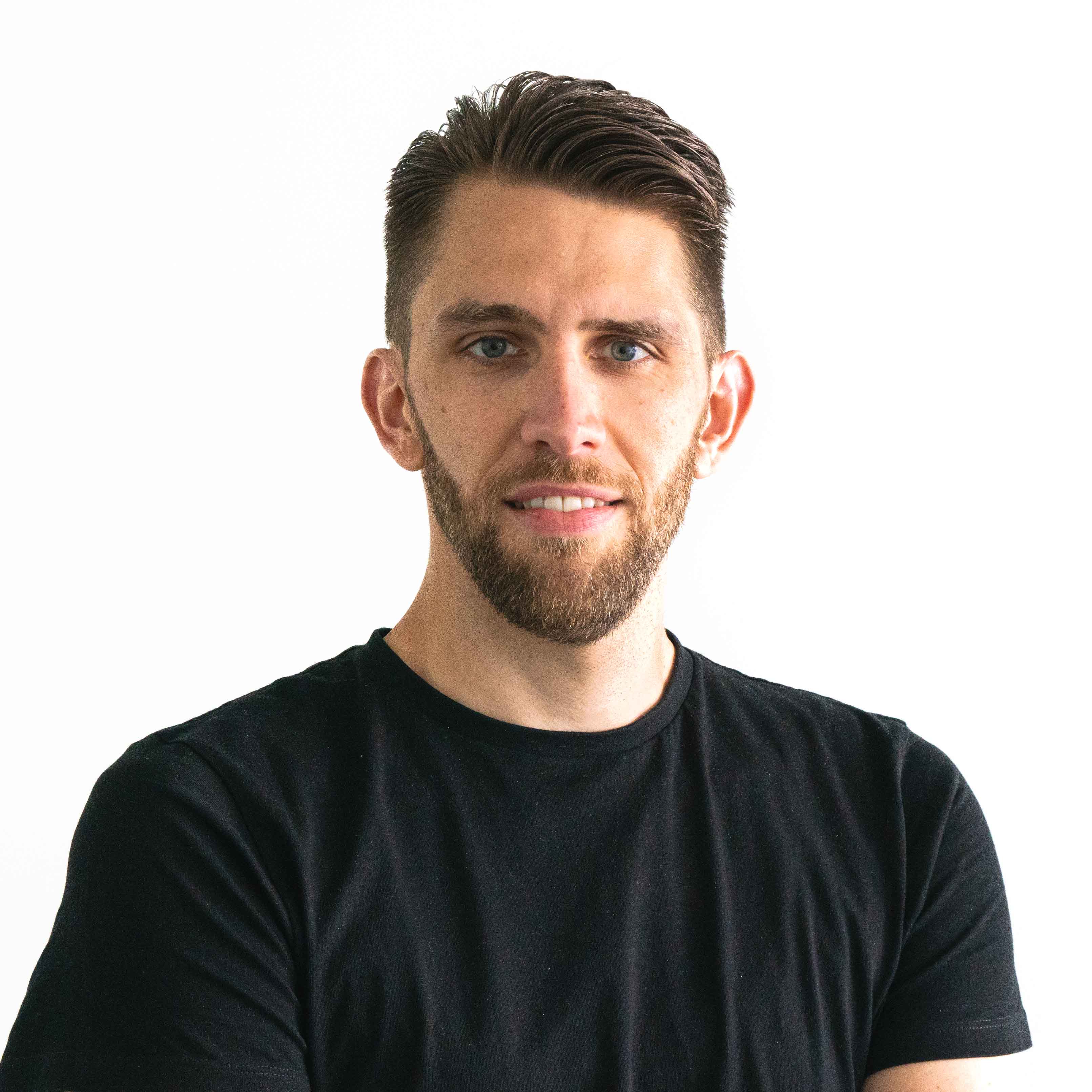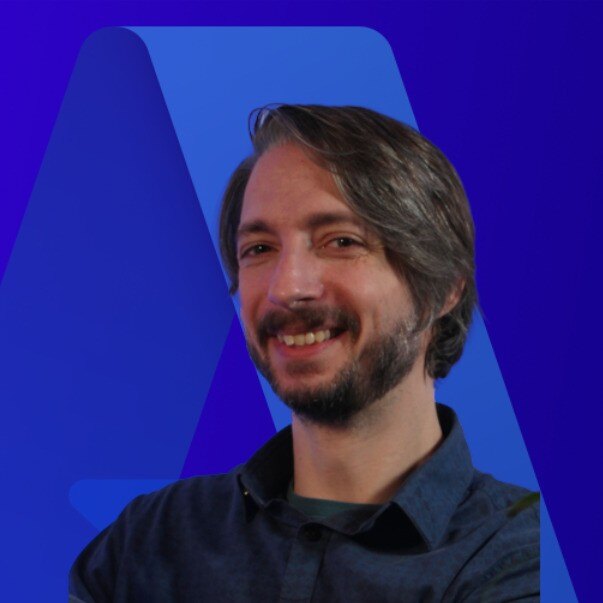
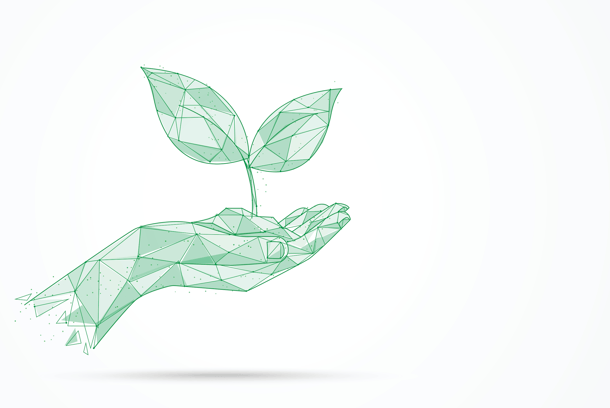
About Bernd
Have we ever told you that we are proud of our employees? I think so! Because just like your grandmother, who can't stop talking about her cleaning lady at the annual family gatherings, who doesn't dust the tops of the cupboards, we can't stop talking about our colleagues. Today, we are a family of over 220 people who are only too happy to achieve their goals and show the best of themselves. Similarly, it does not take much effort to create enough enthusiasm to commit to the UN Sustainability Goals throughout the whole company: our colleagues are already working on it themselves. We took Bernd van Velsen out of his concentration for a while to have a conversation about what he is doing to help people, the planet and the animals.
Five years ago, Bernd started working as a Solution Engineer in the proud 'Code-Busters' team for our client IDEWE, an external service for prevention and protection at work. In any case, it's a good thing that you can help a customer to make all kinds of workplaces healthy and safe, but in his spare time Bernd is doing many things as well. When he comes home, he greets a foster child in addition to his two children. And that was a purposeful choice, says Bernd: “We made a conscious choice to open up our family to a foster child after having our own two children. There are different forms of foster care. Perspective foster care (long term fostering), short term fostering (max. 2 times 6 months), emergency care (short term, but urgent), and supportive foster care”.
Due to the different types of foster care, Bernd and his family were already able to help a lot of foster children: “We have one child who has been with us for over 9 years now, and also have already temporarily cared for 8 other children in our family in the forms of emergency foster care and short term foster care. In practice, this means that we are responsible for day-to-day care. Sometimes we also speak at information evenings to introduce people to foster care. During these evenings we tell our experiences as a foster family and what fun moments and pitfalls there can be.”
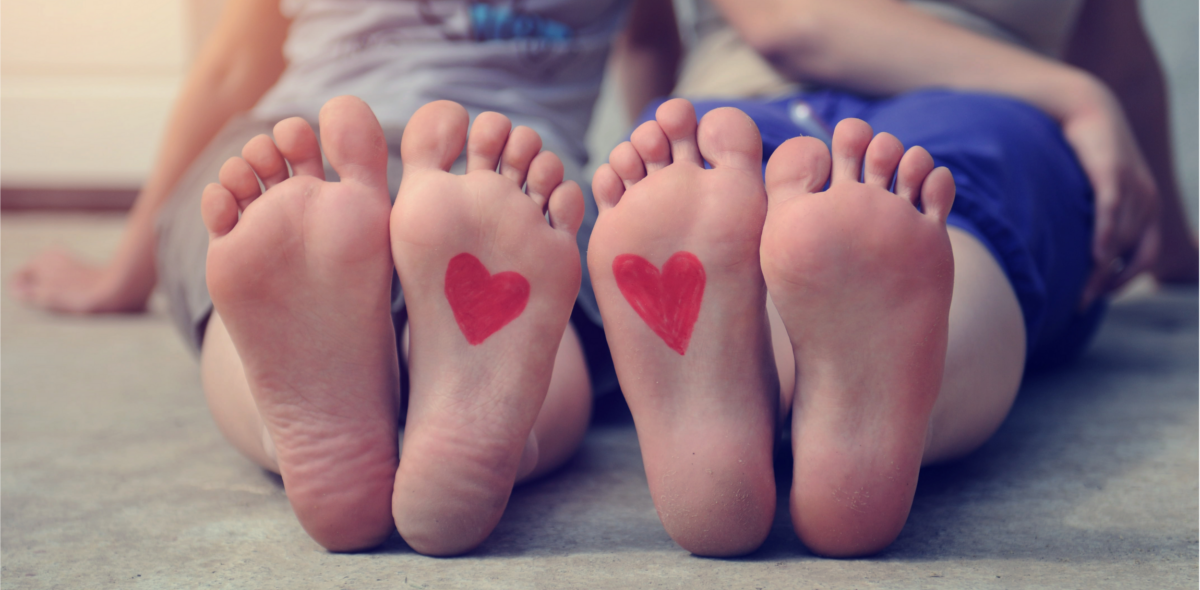
Becoming a foster family is of course not something you just simply do. Bernd and his family did this through the organization named Pleegzorg Vlaanderen. Bernd explains: “Foster care is a form of support for children, young people and adults with a disability or psychiatric problem, who are temporarily unable or allowed to live at home for various reasons. Foster families offer shelter and care to foster children or foster adults during that time. They do so voluntarily, but with the support of a foster care service. Foster care can last until the foster child or foster adult can go home or live independently.”
When asked whether Bernd would recommend foster care to others, he has his thoughts… Sometimes he thinks it is better to help foster families and children in a different way: “I always find it risky to recommend foster care to someone, because it has to be a conscious choice that has to fit into your life. But you can also support foster care and foster children in other ways. Help to raise awareness of foster care via social media, or, for example, to make a donation to foster care via trooper.be via purchases in web shops.”
Sustainable superhero
In order to be able to give his children and foster children a bright future on a healthy planet, Bernd and his family also live as sustainably as possible. He explains one of his most drastic actions, for example: “We try to save money in many areas at home. Sometimes even to the level that we get strange looks from our environment :-). One of the most drastic actions of this year is lowering the heating at home by wearing an extra sweater. In addition, we recently invested in a home automation system to use lighting in a smarter way. And we also prefer to make small or short trips by bike. We try to find a new destination for our old stuff and materials that we no longer use (De Kringwinkel, moeders voor moeders, 2dehands, De Weggeefwinkel).”
Bernd and his family also try to contribute in the field of nutrition, for example by using an app. “That's TooGoodToGo,” explains Bernd. “With this app, (food) stores, restaurants, liquor stores and flower shops can indicate whether they have products that are about to expire and can therefore no longer be sold. And you can save this from the garbage can for a low amount of money. Good for your wallet and the environment.”

Speaking of rescue, Bernd doesn't go to Blankenberge at the weekend to get over-enthusiastic swimmers out of the sea. What he does is thinking about how he can help animals. “Through the animal shelter of Sint-Truiden we take in kittens 'in season' that have to get used to human contact. This is mainly to keep them out of the shelter and so that they can get used to human contact as quickly as possible. We therefore ensure that they become social and that they have received the necessary vaccinations, and that they are also castrated / sterilized. If all this is done, they will be put on an adoption list.”
During our own ACA Warmest Weekend, which we have started since the start of the pandemic, Bernd organizes a litter tour. Together with other team members, he sets out with the necessary material to fill a lot of bags with waste that should never have been there. But he does not only do this during the Warmest Weekend. “Most cities and towns count on help from volunteers to periodically keep a part of their city / town clean by collecting litter. You will receive all the resources for this (turnip greens, gloves, garbage bags, ring for waste bag to hold) for free. You can do this wherever and whenever you want, and even in other Flemish regions. I try to fill a bag with litter at least once a month.” But is it necessary to get out of your seat every month for this? Unfortunately yes, according to Bernd: “Unfortunately, finding waste is never a problem, especially on quiet lanes and bushes a lot of waste is dumped. There is also an app 'WePlog' where you can easily see where no litter has been collected for a long time. This can also help to know where it is 'worth the effort' to take a look. I also walk a lot myself, so it is a small effort to take a waste bag with me on a hiking trip.”
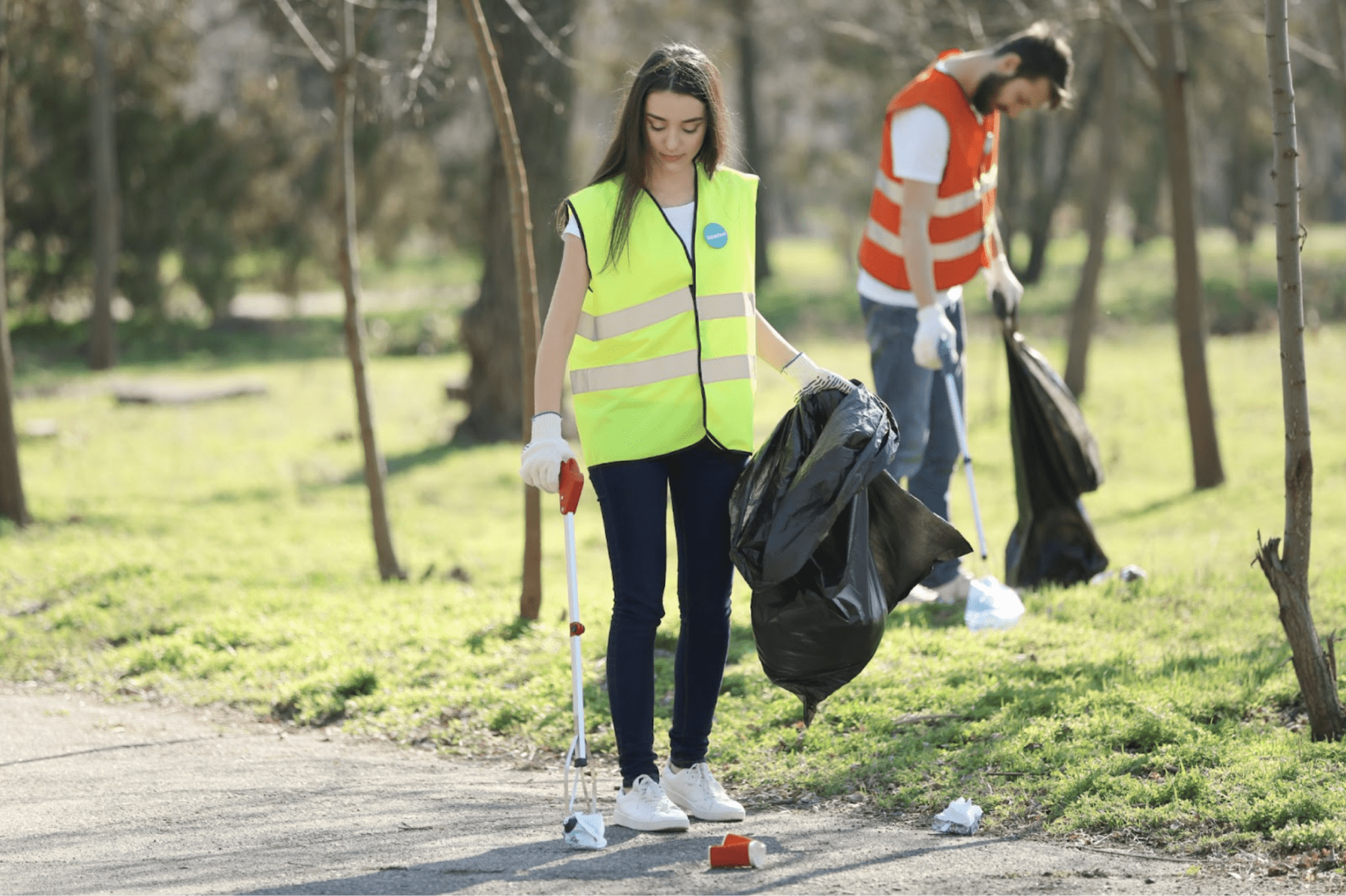
And that seems like something we can try ourselves during our next walk. Just like the many other tips Bernd has given us. We have listed them below:
- Support foster children by raising awareness of the organization through social media or other ways. Or make a donation to Pleegzorg Vlaanderen via www.pleegzorg.be.
- Think about savings at home. Turn your heating down a little and take the bike more often.
- Give your things you don’t need anymore a new destination via De Kringwinkel, Moeders voor moeders, 2dehands.be or Weggeefwinkel
- Use the TooGoodToGo app so less food will be thrown away.
- Adopt your animal in an animal shelter like Dierenasiel ‘Dierenvrienden’
- Take a garbage bag with you on your next hike to pick up trash. You can find routes via the WePlog app where no other litter collector has been passed for a long time.

What others have also read
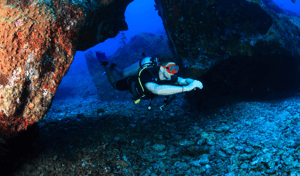
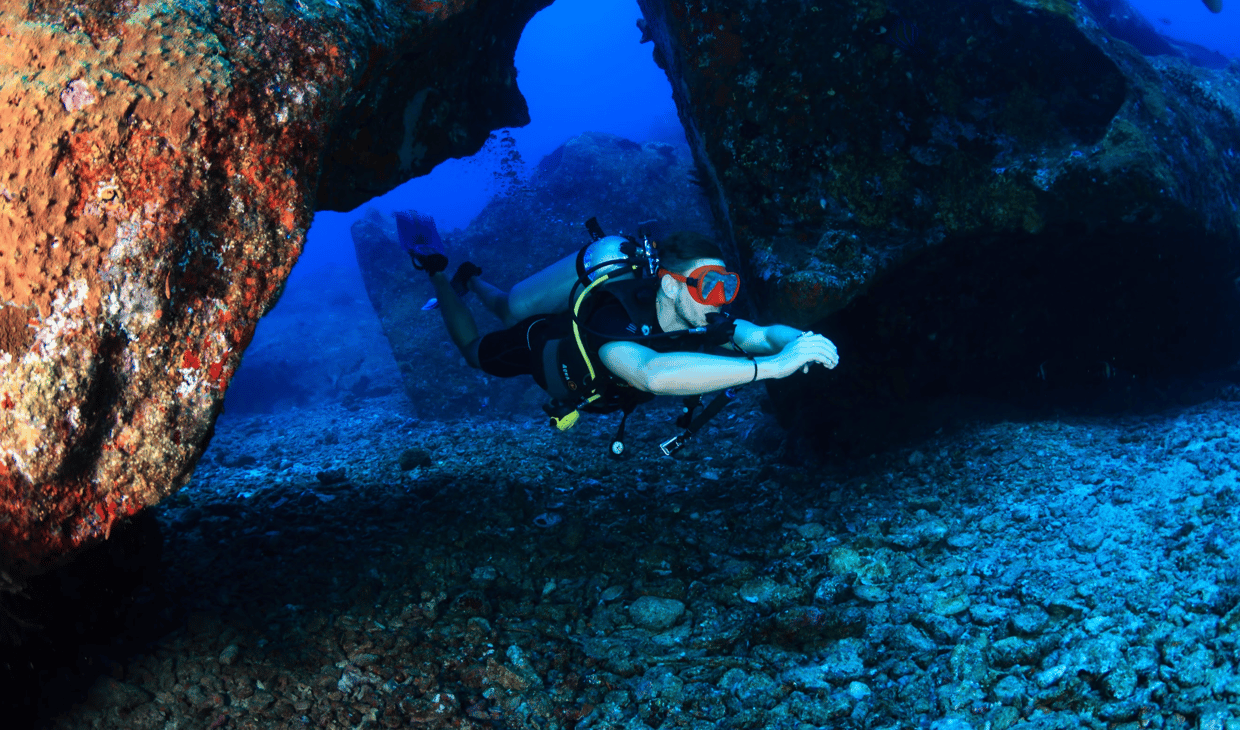
A while ago we introduced you to Bernd , our colleague who does a lot for people, planet and animals. But he is not the only ACA member trying to do his part. In this blogpost, our team member Jannik, who has been part of the ACA family for 10 years now, will share his story. He tells us where his passion for diving comes from, why overfishing is throwing the ecosystem of our oceans out of balance and most importantly, how we can all help keep the oceans, and therefore our planet, healthy. 10 years at ACA. Jannik has already experienced a big piece of ACA history. He explains: “My first project was Riscpro at our client IDEWE. After a few months this project came to an end and I made the switch to something completely different: Atlassian consultancy. After a year of installing and configuring JIRA, Confluence and Stash, setting up workflows, … I wanted to get back to some more teamwork.” He went looking for this in our (now old) offices in Oevel and shortly afterwards in Olen as a software developer. In the meantime, you can find him working in our office in Hasselt as well as our new place in Leuven. His passion: diving and our oceans But what we mainly want to talk about in this blog post is his other passion: diving and our oceans. “Passion is the right word though! In 2016 I did an eight-week backpacking trip through Thailand and down the east coast of Australia. The idea was to get my diving license in Koh Tao , a tiny island in Thailand with more than 50 diving schools. This island is known as the diving mecca for learning to dive, but at the same time it is also nicknamed “Murder Island”, although I didn't know this at the time. After this experience, I could use my diving license in Australia to dive the Great Barrier Reef. And so it happened.” Suddenly everything came together and Jannik rediscovered himself. What followed were a lot of trips to beautiful international waters. When we ask about his favorite location, he finds it difficult to choose : “It is like asking “what is your favorite food?”. My answer is usually “I want to discover everything!” However, there is one location that stands out the most. That was Wolf Rock on the east coast of Australia . This was my first experience with sharks. I was impressed, at the very least, to see more than ten 6-foot sharks in front of and around me in a single image. This is where I learned that the Hollywood Jaws image is hugely wrong. Sharks are no killing machines!” Unfortunately, he also learned what is going less well with our oceans : “On the one hand, you have the problem of overfishing and shark finning, two things that cause the ecosystem of our oceans to go out of balance. On the other hand, there is the plastic problem.” Shark finning sounds like a specific problem. Something that harms one species. But nothing could be further from the truth and this has a much greater influence, Jannik emphasizes: “Sharks are the predators of the ocean, take the predators away and you get an oversupply of certain animal species, which destroys the entire balance. You also see this upland, the impact of predators that help regulate the ecosystem. One of the problems, introduced in part by the media, is that few people care about sharks. They remain killing machines for most.” He would therefore like to emphasize the importance of informing predators. “Few people know this, but our oceans are responsible for 70% of our oxygen, produced by algae and plankton . They are the real lungs of our planet. If you kill this ecosystem, it's a big problem unless we learn to live without oxygen." And then of course you also have the better-known problem: all of our plastic . Jannik tells us that plastic ends up in the oceans via the rivers. A consequence of this is called The Great Pacific Garbage Patch , an accumulation of plastic no less than three times larger than France! “Organizations like The Ocean Cleanup have formed to tackle this specific problem, both through systems to clean up the GPG patch and systems to clean up the rivers so that the plastic is cleaned up before it ends up in the ocean. Apart from the disastrous impact this has on animal life (you can find enough not-so-pleasant images about this), it also comes back to us in the form of microplastics, causing us to consume it without realizing it.” When we ask how he tries to help with this problem, Jannik remains critical of himself. “Not enough is the first thing that comes to mind... I find it difficult to address these topics while I travel so much myself which has its own impact. But I do what I can, and I think everyone should decide for themselves what they can do . Due to the problem of overfishing our oceans, I decided last year to stop eating fish. Shame as I really like sushi. However, I am convinced that there is no such thing as “sustainable fish” (a topic in its own right) and I choose to abstain from this. In connection with the problem of plastic, I try to avoid plastic whenever I can. For example, you can easily avoid straws, even if this is only peanuts compared to the real problem. But it is mainly the mindset that triggers the straws. In any case, people are becoming more and more aware of it. Recycle, recycle, recycle . I recycle as much as I can, to the point that I tear the plastic off my bread bag to throw it in the PMD. The question is then whether this is sufficient and whether it is really recycled, which is why avoiding it is simply the best solution. Furthermore, according to Jannik, we should especially inform ourselves: "I can recommend everyone to watch Sea Spiracy on Netflix , as a result of this documentary I was convinced that I will no longer eat fish." You should also definitely visit interesting organizations such as Sea Shepherd (a non-profit that protects life in the oceans) and The Ocean Cleanup (a Dutch organization that wants to clean up our oceans). You can find Jannik in Indonesia this November, where he will also complete his 100th dive during his seven-day diving trip. In addition, there are many other plans on his agenda: “I still want to do so many things! Snorkel with Orcas in the Lofoten Islands, dive in Mozambique in the hope of encountering several great white sharks in their wild setting. But I also want to go to Antarctica at some point in my life.” Thank you for sharing your story with us and have fun diving in Indonesia!
Read more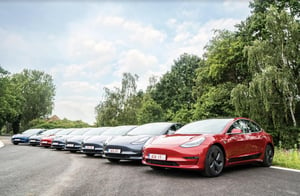
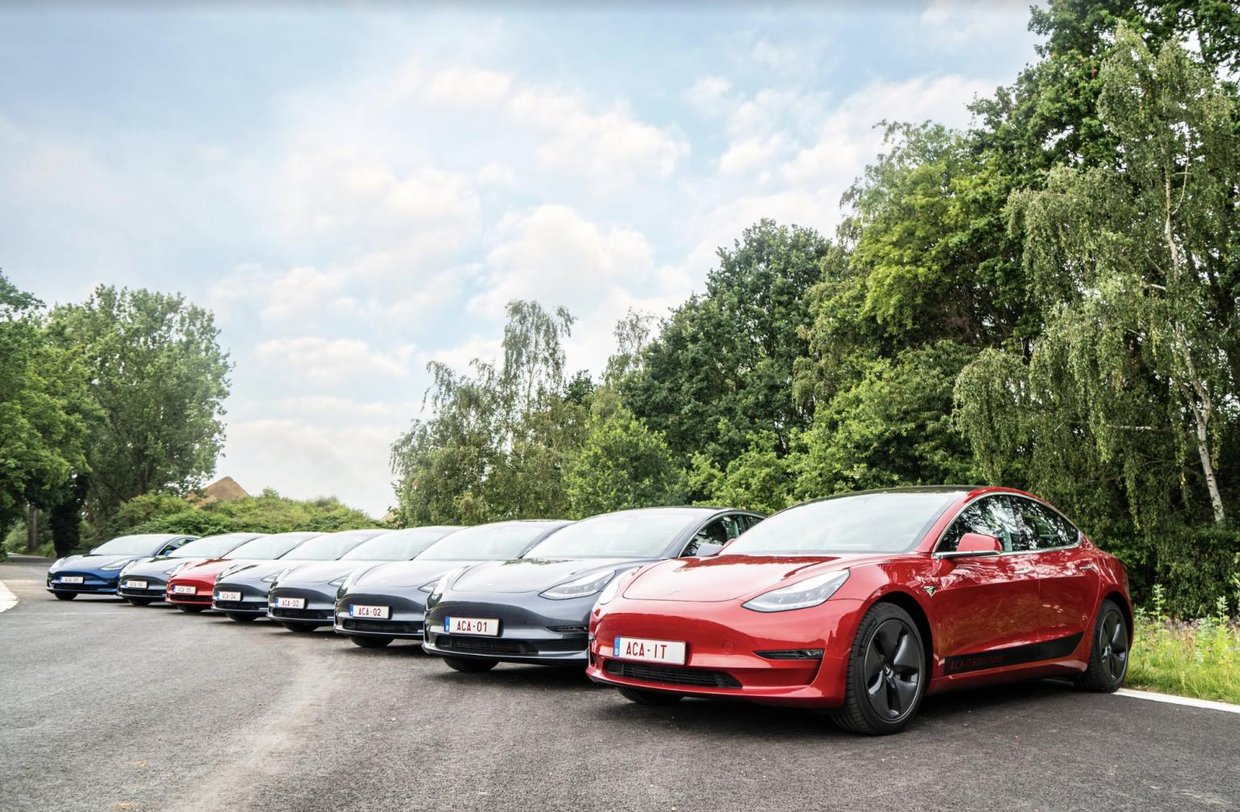
For ACA, it’s important to take our responsibility as a company and to handle our planet in a sustainable way. As an organization, there are a few things we can do to help reduce the ecological footprint. One of these things is green mobility by means of an electric fleet. Belgium is currently in the middle of the transition from an ICE fleet to an EV fleet. The Belgian government recently took the decision to only continue tax benefits for emission-free company cars by 2026. As a result, many organizations will have to go through a transition to an electric fleet in a short period of time. This means that fleets will evolve from a majority of internal combustion engine (ICE) fossil fuel vehicles to a fleet with only electric vehicles (EV). At ACA, we’re glad we’ve started this project a long time ago already and will achieve this goal by 2025! We see our place in the world as one in which we inspire and accelerate sustainable growth worldwide by empowering people through innovation, technology and knowledge. A completely electric fleet, too, helps in achieving this goal and keeping our environmental impact as limited as possible. We already started doing this 10 years ago by introducing our employees to electric vehicles. Since then, all our colleagues have been able to book an electric car for a week or during the weekend. Today, so many years later, this initiative helped us to electrify our fleet very quickly. After all, many colleagues had already been convinced to go fully electric thanks to their positive experiences in these past years. An ambitious goal and motivated colleagues We’re extremely proud that this big transition is going very smoothly for us. It took a considerable amount of time for a wide range of electric cars to appear on the market. Nevertheless, in 2021, we have enough options available from which most employees will find a car that fits their needs. We know this because our employees are still completely free to choose between an ICE or an EV, but 36 of the 43 cars ordered this year are already fully electric. It appears that more and more people, clearly including our own colleagues, are thinking of an electric vehicle. We – and the planet – are very happy about that! A number of these electric cars have already been delivered. In the course of the second half of 2021, when the other deliveries will have been made, our Co2 emissions per kilometer will have been reduced by more than 40% compared to 2019!* We’re ecstatic and very proud about this result! Proper change management and attractive options are key People often oppose change, but by handling this project properly, the transition to an electric fleet is going very smoothly. In our organization, we always communicate and inform in a transparent way about anything and everything. Naturally, that includes the transition to a green fleet. In addition, we make any necessary facilities available to our employees, such as the charging infrastructure at our offices, a charging solution for at home and one for on-the-go. Our fleet experts are also always there to help our employees with questions and provide all the necessary information. As a result, our employees (and freelancers) follow our ambitious goal of having an emission-free company fleet by 2025. We’ve come a long way in less than two years thanks to great teamwork. We therefore believe that the ICE lease contracts in the coming years will be replaced by a green mobility choice. #letsgogreentogether We’re glad we already started this project years ago, as it prepared us for the transformation to a fully electric fleet. New and increasingly appealing models appear on the market every year, making the switch to an EV easier. In addition to the Tesla Model 3, employees and freelancers at ACA are currently driving the Kia e-Niro, Volkswagen ID.3 and Mercedes EQC. Later this year the BMW iX3, Audi e-tron (Sportback) 55, Volkswagen ID.4 and Ford Mustang Mach E will follow. Technology keeps moving forward, which means that the range of the battery constantly increases. Furthermore, the charging infrastructure along Belgian roads is increasing rapidly. Thanks to these advances, we’ve noticed that the majority of our employees no longer suffer from range anxiety and other concerns that come with an EV. Other green initiatives at ACA Group We don’t want to just help our planet by offering electric company cars. We foresee other initiatives that help to limit the ecological footprint. This includes offering a bicycle lease, public transport, teleworking, workplaces close to home and energy-saving systems in our offices. As time moves on, we’ll keep our eyes peeled for other initiatives that help reduce our carbon footprint. * We started our project towards a green fleet in 2019. We took delivery of the first EVs at the end of that year.
Read moreWant to dive deeper into this topic?
Get in touch with our experts today. They are happy to help!
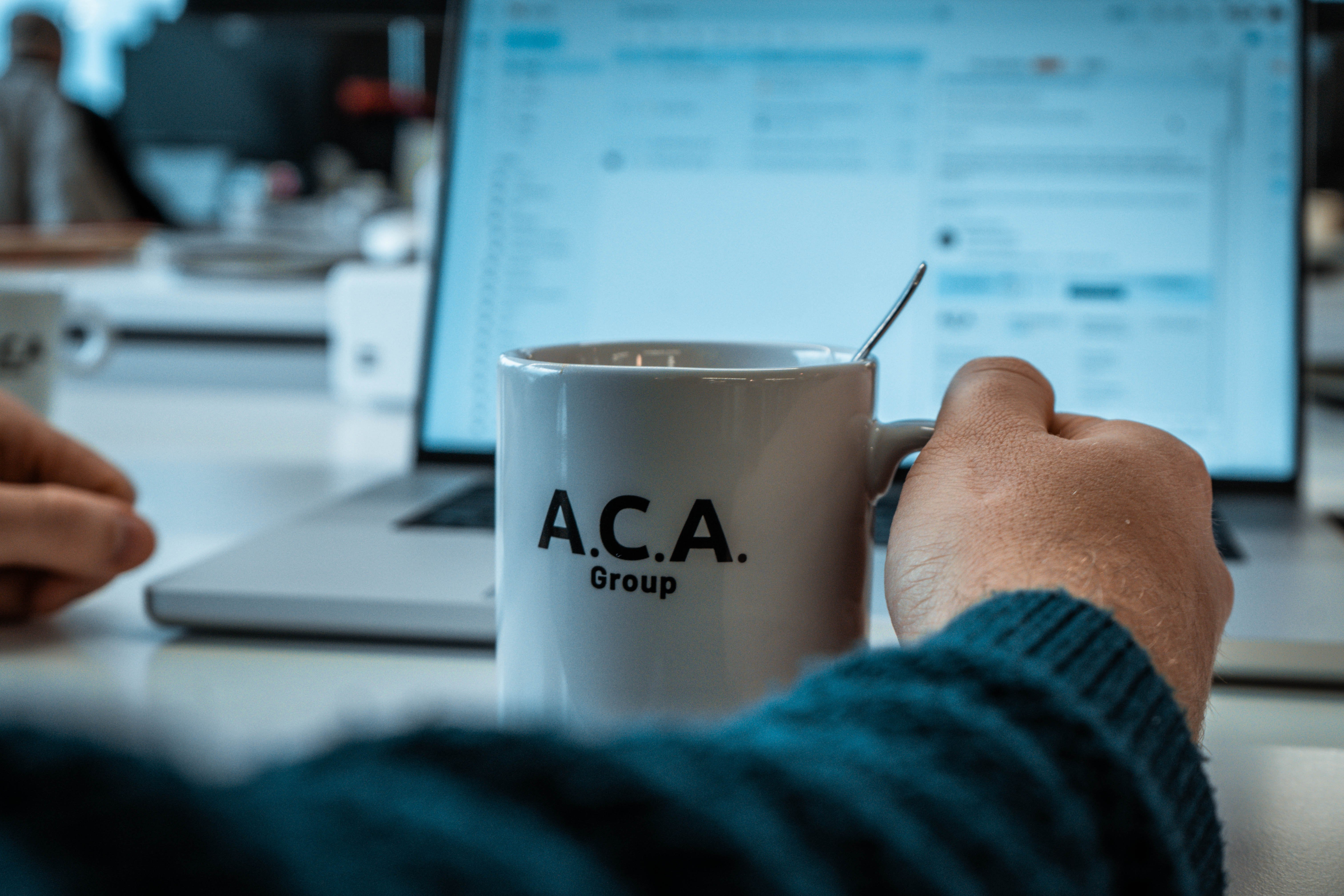
Want to dive deeper into this topic?
Get in touch with our experts today. They are happy to help!

Want to dive deeper into this topic?
Get in touch with our experts today. They are happy to help!

Want to dive deeper into this topic?
Get in touch with our experts today. They are happy to help!

